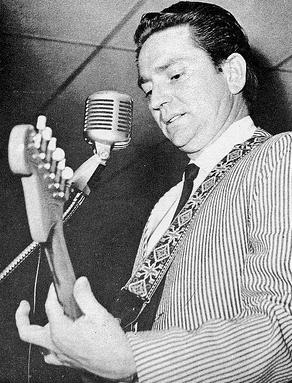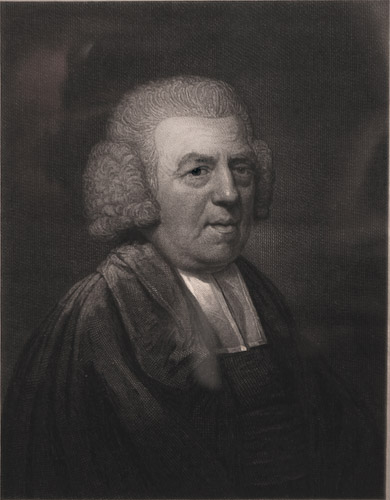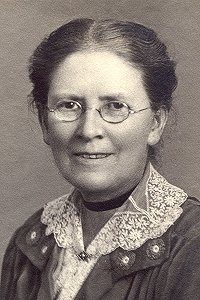|
Willie And Family Live
''Willie and Family Live'' is a live album by country music artist Willie Nelson. It was released in 1978 as a double- LP. It was recorded live at Harrah's in Lake Tahoe, Nevada in April 1978. Emmylou Harris provides backup vocals on "Will the Circle be Unbroken", "Uncloudy Day" and "Amazing Grace"; Johnny Paycheck provides backup vocals on "Amazing Grace" and "Take this Job and Shove It". Track listing Transcribed from original album labels 3/15/2011 Side one: # "Whiskey River" – 3:38 # "Stay a Little Longer" – 3:24 # "Funny How Time Slips Away" – 2:45 # "Crazy" – 1:47 # "Night Life" – 3:55 # "If You've Got the Money I've Got the Time" – 1:44 # "Mammas Don't Let Your Babies Grow Up to Be Cowboys" – 3:33 # "I Can Get Off on You" – 2:06 Side two: # "If You Could Touch Her at All" – 3:00 # "Good Hearted Woman" – 2:57 # "Red Headed Stranger Medley" – 14:25 :* "Time of the Preacher" – 2:13 :* "I Couldn't Believe It Was True" – 1:03 :* "Medley: Blue Rock Mon ... [...More Info...] [...Related Items...] OR: [Wikipedia] [Google] [Baidu] |
Willie Nelson
Willie Hugh Nelson (born April 29, 1933) is an American country musician. The critical success of the album ''Shotgun Willie'' (1973), combined with the critical and commercial success of ''Red Headed Stranger'' (1975) and '' Stardust'' (1978), made Nelson one of the most recognized artists in country music. He was one of the main figures of outlaw country, a subgenre of country music that developed in the late 1960s as a reaction to the conservative restrictions of the Nashville sound. Nelson has acted in over 30 films, co-authored several books, and has been involved in activism for the use of biofuels and the legalization of marijuana. Born during the Great Depression and raised by his grandparents, Nelson wrote his first song at age seven and joined his first band at ten. During high school, he toured locally with the Bohemian Polka as their lead singer and guitar player. After graduating from high school in 1950, he joined the U.S. Air Force but was later discharged d ... [...More Info...] [...Related Items...] OR: [Wikipedia] [Google] [Baidu] |
Crazy (Willie Nelson Song)
"Crazy" is a song written by Willie Nelson and popularized by country singer Patsy Cline in 1961. Nelson wrote the song while living in Houston, working for Pappy Daily's label D Records. He was also a radio DJ and performed in clubs. Nelson then moved to Nashville, Tennessee, working as a writer for Pamper Music. Through Hank Cochran, the song reached Patsy Cline. After her original recording and release, Cline's version reached number two on ''Billboard's'' Hot Country Singles, also crossing to the pop chart as a top 10 single. Cline's version is considered a country music standard and, in 1996, became the all-time most played song in jukeboxes in the United States. "Crazy" was covered by many artists; different versions reached the charts in a variety of genres. The song was featured in television shows, while many publications have included it in their all-time best songs lists. The Library of Congress inducted Cline's version into the National Recording Registry in 2003. ... [...More Info...] [...Related Items...] OR: [Wikipedia] [Google] [Baidu] |
Take This Job And Shove It
"Take This Job and Shove It" is a 1977 country music song written by David Allan Coe and popularized by Johnny Paycheck, about the bitterness of a man who has worked long and hard with no apparent reward. The song was first recorded by Paycheck on his album also titled ''Take This Job and Shove It''. The recording hit number one on the country charts for two weeks, spending 18 weeks on the charts. It was Paycheck's only #1 hit. Its B-side, "Colorado Kool-Aid," spent ten weeks on the same chart and peaked at #50. Coe's recording was released in 1978 on his album '' Family Album''. Coe also recorded a variation of the song called "Take This Job and Shove It Too" on his 1980 album "I've Got Something To Say". It included the double-meaning line "Paycheck, you may be a thing of the past." Coe was annoyed that people assumed that Paycheck had written the song. (Though the single released by Paycheck, and subsequent album, both correctly credit Coe as the song's composer.) The song ... [...More Info...] [...Related Items...] OR: [Wikipedia] [Google] [Baidu] |
Amazing Grace
"Amazing Grace" is a Christian hymn published in 1779 with words written in 1772 by English Anglican clergyman and poet John Newton (1725–1807). It is an immensely popular hymn, particularly in the United States, where it is used for both religious and secular purposes. Newton wrote the words from personal experience; he grew up without any particular religious conviction, but his life's path was formed by a variety of twists and coincidences that were often put into motion by others' reactions to what they took as his recalcitrant insubordination. He was pressed (navally conscripted) into service with the Royal Navy, and after leaving the service, he became involved in the Atlantic slave trade. In 1748, a violent storm battered his vessel off the coast of County Donegal, Ireland, so severely that he called out to God for mercy. While this moment marked his spiritual conversion, he continued slave trading until 1754 or 1755, when he ended his seafaring altogether. Newton ... [...More Info...] [...Related Items...] OR: [Wikipedia] [Google] [Baidu] |
Will The Circle Be Unbroken
"Will the Circle Be Unbroken?" is a popular Christian hymn written in 1907 by Ada R. Habershon with music by Charles H. Gabriel. The song is often recorded unattributed and, because of its age, has lapsed into the public domain. Most of the chorus appears in the later songs " Can the Circle Be Unbroken" and "Daddy Sang Bass". Lyrics :There are loved ones in the gloryHabershon, Ada R., and Gabriel, Charles H. (1907) nd. Pub. 1910 "Will the Circle Be Unbroken". In Alexander, Charles M. comp. ''Alexander's Gospel Songs No. 2''. Fleming H. Revell Company, New Yorkp. 33, song 28./ref> :Whose dear forms you often miss. :When you close your earthly story, :Will you join them in their bliss? : :Will the circle be unbroken :By and by, by and by? :Is a better home awaiting :In the sky, in the sky? :In the joyous days of childhood :Oft they told of wondrous love :Pointed to the dying Saviour; :Now they dwell with Him above. :You remember songs of heaven :Which you sang with childish vo ... [...More Info...] [...Related Items...] OR: [Wikipedia] [Google] [Baidu] |
Hello Walls
"Hello Walls" is an American country music song written by Willie Nelson and first recorded by Faron Young. It became a massive hit in 1961, reaching #1 country and spent 23 weeks on the chart. On other charts, it peaked at #12 pop, and was Young's only top 40 pop hit in the United States. Young's version featured Floyd “Lightnin’” Chance on double bass. “Hello Walls” introduced Nelson to a national audience. In 1996, Nelson recorded a rock version of the song with the band The Reverend Horton Heat for the album '' Twisted Willie''. Content The lyrics portray a man's lonely conversation with his walls, window and ceiling after having been jilted by his lover. Chart performance Other recordings *Ralph Emery had an answer song called "Hello Fool" in 1961, which peaked at #4 on the Country Charts. That song was Emery's only hit as a singer. *Willie Nelson recorded it for his 1962 debut album ''And Then I Wrote''. *Johnny Tillotson recorded it on his 1962 album ''It K ... [...More Info...] [...Related Items...] OR: [Wikipedia] [Google] [Baidu] |
Bloody Mary Morning
"Bloody Mary Morning" is a song written and recorded by American country music singer Willie Nelson. Nelson wrote the song inspired by his struggles to become a "better parent". It was originally released in the 1970 RCA Records release ''Both Sides Now'' with the title "Bloody Merry Morning". During a party in Nashville, Tennessee, in 1972, Nelson performed the song along with others he planned to include on an upcoming concept album. Nelson impressed another guest at the party, Atlantic Records vice-president Jerry Wexler. Wexler offered him a contract to be a part of the new country music division of Atlantic, which Nelson accepted after ending his unsuccessful run with RCA. "Bloody Mary Morning" was included in Nelson's concept album ''Phases and Stages'', where the meaning of the song was shifted by the context of the album, changing the theme to a man who is left by his wife. Released as a single, it peaked at number 17 in ''Billboard''s Country singles in 1974, later be ... [...More Info...] [...Related Items...] OR: [Wikipedia] [Google] [Baidu] |
'Til I Gain Control Again
"Till I Gain Control Again" is a country song written by Rodney Crowell and originally recorded by Emmylou Harris in 1975. The song was included on her 1975 studio album ''Elite Hotel''. The song is most known by the No. 1 single version recorded by Crystal Gayle on her 1982 album, '' True Love''. Composition Rodney Crowell wrote the song while working for Jerry Reed's publishing company. At the time, he was hanging out with noted songwriters Townes Van Zandt, Guy Clark, and Steve Runkle, and wanted to show his own songwriting skill.Cooper, PeterRodney Crowell: Closer to Heaven ''American Songwriter'', October 31, 2008. In retrospect, Crowell expresses regret at rhyming "been" with "can" in the lyric "What you've seen is what I've been/There is nothing I could hide from you/You see me better than I can." Had he written the song later in his career, Crowell says he would have spent time to find a hard rhyme. Crowell marvels when people tell him this song is their favorite of his. C ... [...More Info...] [...Related Items...] OR: [Wikipedia] [Google] [Baidu] |
Under The Double Eagle
"Under the Double Eagle" (), Op. 159, is an 1893 march composed by J. F. Wagner, an Austrian military music composer. The title is a reference to the double eagle in the coat of arms of Austria-Hungary. It was published in the United States in 1902 by Eclipse Publishing Co., a branch of Joseph Morris Music in Philadelphia, Pennsylvania. This piece is in E-flat major, though the ''Trio'' is in A-flat major. It is written in ternary form. In 1935, Bill Boyd and His Cowboy Ramblers, with an arrangement by Mort Glickman on Bluebird Records, was second only to the Carter Family in the top Hillbilly (Country) music hits of the year. It became a Western swing standard, and has been recorded by many Country and Bluegrass artists since. The tune was parodied in the Benny Goodman recording "Benjie's Bubble" and was also used for the well-known ''Monty Python's Flying Circus ''Monty Python's Flying Circus'' (also known as simply ''Monty Python'') is a British surreal sketch co ... [...More Info...] [...Related Items...] OR: [Wikipedia] [Google] [Baidu] |
Blue Eyes Crying In The Rain
"Blue Eyes Crying in the Rain" is a song written by songwriter Fred Rose. First recorded by Elton Britt in 1946, then made more popular by Roy Acuff in 1947, the song has been covered by many artists, including Hank Williams Sr., Johnny Russell, and Charley Pride & Elvis Presley. Most notably, the song was recorded by Willie Nelson as part of his 1975 album ''Red Headed Stranger''. Both the song and album revived Nelson's success as a singer and recording artist. Song history Originally recorded in 1947 by Acuff, "Blue Eyes Crying in the Rain" was recorded by Hank Williams in 1951 for the ''Mother's Best Flour Hour''. Other early remakes of the song were made by Donn Reynolds (MGM single - June 1957), Ferlin Husky (album ''Ferlin's Favorites'' - November 1959), Slim Whitman (album ''Country Favorites'' - 1959), Gene Vincent (recorded October 15, 1958/ album ''Crazy Times!'' -1960), Bill Anderson (album ''...Sings Country Heart Songs'' - January 15, 1962), John D. Loudermilk (alb ... [...More Info...] [...Related Items...] OR: [Wikipedia] [Google] [Baidu] |
Red Headed Stranger
''Red Headed Stranger'' is the 18th studio album by American outlaw country singer Willie Nelson, released in 1975. Following the success of his recordings with Atlantic Records, coupled with the negotiating skills of his manager, Neil Reshen, Nelson signed a contract with Columbia Records, the label that gave him total creative control over his works. The concept for the album was inspired by the " Tale of the Red Headed Stranger", a song that Nelson used to play as a disc jockey on his program in Fort Worth, Texas. After signing with Columbia, he decided to record the song, and arranged the details during his return to Austin, Texas, from a trip to Colorado. It was recorded at low cost at Autumn Sound Studios in Garland, Texas. The songs featured sparse arrangements, largely limited to Nelson's guitar, piano, and drums. Nelson presented the finished material to Columbia executives, who were dubious about releasing an album that they at first thought was a demo. However, Nelson h ... [...More Info...] [...Related Items...] OR: [Wikipedia] [Google] [Baidu] |
Good Hearted Woman
''Good Hearted Woman'' is a studio album by American country music artist Waylon Jennings, released in 1972 on RCA Nashville. Background Along with '' Ladies Love Outlaws'', released later in 1972, and ''Lonesome, On'ry and Mean'' (released early the following year), ''Good Hearted Woman'' was responsible for transforming Jennings' image into that of one of the representatives of the outlaw country movement. The LP contains a slew of songs written by like-minded songwriters such as Willie Nelson, Tony Joe White and Kris Kristofferson, whose compositions were pushing the boundaries of the conservative country music establishment. Jennings, who had been frustrated by the assembly line production at RCA for years, became a leading force in what was being called "progressive country" music. In the audio version of his autobiography ''Waylon'', the singer recalls his frustration: "I would think of ideas and before I got a chance to put 'em down - or even hear if they even worked ... [...More Info...] [...Related Items...] OR: [Wikipedia] [Google] [Baidu] |



